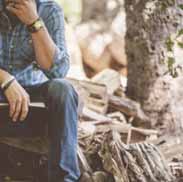Ap Us History Terms Test Questions – Flashcards
Unlock all answers in this set
Unlock answersquestion
Edict of Nantes
answer
1598- Granted Calvinist Protestants rights in England
question
Beard Thesis (of the Constitution)
answer
Charles Beard= American author Argues that founding fathers drafted the constitution with their personal finances in mind.
question
Jingoism
answer
Agressive foreign policy
question
Lowell System
answer
Labor & production model Used in Am. textile industry in the early 19th century.
question
Bland-Allison Act
answer
1878- Act of Congress requiring the U.S. Treasury to buy a certain amount of silver and put it into circulation as silver dollars.
question
Addams-Onis Treaty
answer
1819- Treaty that gave the U.S. Florida and settled a border between them and New Spain (now Mexico)
question
Rough Riders
answer
Name bestowed on the 1st United States Volunteer Cavalry, one of three such regiments raised in 1898 for the Spanish-American War and the only one of the three to see action.
question
Terrence Powderly
answer
He was a highly visible national spokesman for the working man as head of the Knights of Labor from 1879 until 1893
question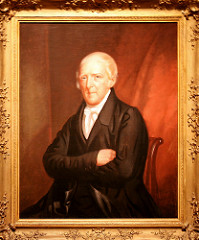
Robert Fulton

answer
An American engineer and inventor who is widely credited with developing the first commercially successful steamboat.
question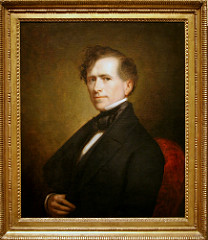
Franklin Pierce

answer
14th President of the United States (1853-1857)
question
Coxey's Army
answer
Was a protest march by unemployed workers from the United States, led by Ohio businessman Jacob Coxey.
question
Border Ruffians
answer
Pro-slavery activists from the slave state of Missouri, who in 1854 to 1860 crossed the state border into Kansas Territory, to force the acceptance of slavery there.
question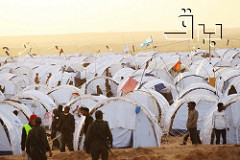
Tripoli War

answer
The 2007 Lebanon conflict began when fighting broke out between Fatah al-Islam, an Islamist militant organization, and the Lebanese Armed Forces (LAF) on May 20, 2007 in Nahr al-Bared, an UNRWA Palestinian refugee camp near Tripoli.
question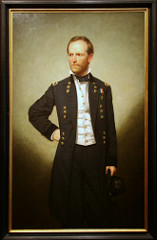
Sherman's March Through Georgia

answer
Savannah Campaign conducted around Georgia from November 15, 1864 to December 21, 1864 by Maj. Gen. William Tecumseh Sherman of the Union Army in the American Civil War.
question
Maysville Road Veto
answer
Vetoed by Jackson Part of the Cumberland Road System; would connect Lexington and Ohio River and run through most of Kentucky
question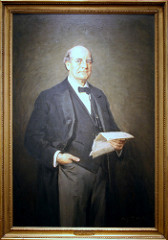
"Cross of Gold" Speech

answer
Speech delivered by William Jennings Bryan, a former congressman from Nebraska, at the Democratic National Convention in Chicago on July 9, 1896. Advocating free silver.
question
Credit Mobilier Scandal
answer
The distribution of Crédit Mobilier shares of stock by Congressman Oakes Ames along with cash bribes to congressmen took place during the Andrew Johnson presidency in 1868
question
Boxer Rebellion
answer
Also known as Boxer Uprising or Yihetuan Movement, was a proto-nationalist movement by the "Righteous Harmony Society" in China between 1898 and 1901, opposing foreign imperialism and Christianity.
question
Freeport Doctrine
answer
Articulated by Stephen A. Douglas at the second of the Lincoln-Douglas debates on August 27, 1858, in Freeport, Illinois.
question
Turner Thesis
answer
The argument advanced by historian Frederick Jackson Turner in 1893 that the origin of the distinctive egalitarian, democratic, aggressive, and innovative features of the American character has been the American frontier experience
question
Wade-Davis Bill
answer
1864 was a program proposed for the Reconstruction of the South written by two Radical Republicans, Senator Benjamin Wade of Ohio and Representative Henry Winter Davis of Maryland. Lincoln vetoed it.
question
Trent Affair
answer
international diplomatic incident that occurred during the American Civil War
question
Iran-Contra Affair
answer
A political scandal in the United States that came to light in November 1986. During the Reagan administration, senior Reagan administration officials secretly facilitated the sale of arms to Iran, the subject of an arms embargo.
question
Pentagon Papers
answer
United States Department of Defense history of the United States' political-military involvement in Vietnam from 1945 to 1967.
question
Russo-Japonese War
answer
(8 February 1904 - 5 September 1905) was "the first great war of the 20th century." It grew out of rival imperial ambitions of the Russian Empire and Japanese Empire over Manchuria and Korea.
question
Saturday Night Massacre
answer
was the term given by political commentators to U.S. President Richard Nixon's executive dismissal of independent special prosecutor Archibald Cox, and the resignations of Attorney General Elliot Richardson and Deputy Attorney General William Ruckelshaus on October 20, 1973 during the Watergate scandal.
question
Watts Riots
answer
Was a civil disturbance in the Watts neighborhood of Los Angeles, California from August 11 to August 15, 1965. The five-day riot resulted in 34 deaths, 1,032 injuries, 3,438 arrests, and over $40 million in property damage
question
Alger Hiss
answer
an American lawyer, government official, author, and lecturer. He was involved in the establishment of the United Nations both as a U.S. State Department and U.N. official. Hiss was accused of being a Soviet spy in 1948 and convicted of perjury in connection with this charge in 1950. (HUAC was involved)
question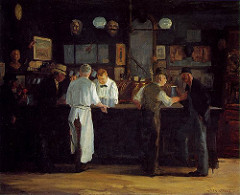
Ashcan School

answer
A realist artistic movement that came into prominence in the United States during the early twentieth century, best known for works portraying scenes of daily life in New York's poorer neighborhoods
question
Betty Friedan

answer
Wrote the feminine mystique
question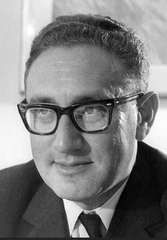
Henry Kissinger

answer
German-born American academic, political scientist, diplomat, and businessman. A recipient of the Nobel Peace Prize, he served as National Security Advisor and later concurrently as Secretary of State in the administrations of Presidents Richard Nixon and Gerald Ford. After his term, his opinion was still sought by many subsequent presidents and many world leaders
question
Hideki Tojo

answer
General of the Imperial Japanese Army (IJA), the leader of the Taisei Yokusankai, and the 40th Prime Minister of Japan during most of World War II, from 17 October 1941 to 22 July 1944
question
James Meredith
answer
1962- First African American to go to the University of Mississippi
question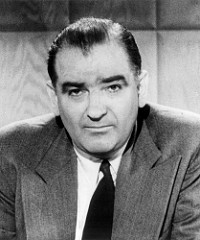
Joseph McCarthy

answer
U.S. Sen from Wisconsin during the Cold War who thought there were many communist and Soviet spies in the U.S.
question
Sinclair Lewis
answer
American novelist and playwright. First American to receive a Nobel prize for Literature.
question
Slobadan Milosevic
answer
Serbian socialist politician in Yugoslavia and Serbia. who was recently charged with war crimes.
question
Warren Burger
answer
was the 15th Chief Justice of the United States from 1969 to 1986. Although Burger had conservative leanings[1] and was considered a strict constructionist, the U.S. Supreme Court delivered a variety of transformative decisions on abortion, capital punishment, religious establishment, and school desegregation during his tenure.
question
William Rehnquist
answer
American lawyer, jurist, and political figure who served as an Associate Justice on the Supreme Court of the United States and later as the 16th Chief Justice of the United States. Considered a conservative, Rehnquist favored a conception of federalism that emphasized the Tenth Amendment's reservation of powers to the states
question
Baghdad Pact
answer
Formed in 1955 by Iran, Iraq, Pakistan, Turkey, and the United Kingdom. It was dissolved in 1979.Considered one of the most unsuccessful Cold War alliances.
question
Eisenhower Doctrine
answer
Said a country could request American economic assistance and/or aid from U.S. military forces if it was being threatened by armed aggression from another state
question
Emergency Quota Act
answer
Restricted immigration to the U.S. from Europe and established a quota that could not be surpassed.
question
Espionage Act
answer
1919- Originally prohibited any attempt to interfere with military operations, to support U.S. enemies during wartime, to promote insubordination in the military, or to interfere with military recruitment. Has been amended since then so it does not interfere with free speech rights.
question
Fordney McCumber Act
answer
1920- Tariff that was made to help protect American farms and factories.
question
Glass-Steagall Banking Act
answer
Established the FDIC , Created the Federal Deposit Insurance Corporation, which insures the accounts of depositors of its member banks. It outlawed banks investing in the stock market.
question
Helsinki Accord
answer
Thirty-five states, including the USA, Canada, and all European states except Albania and Andorra, signed the declaration in an attempt to improve relations between the Communist bloc and the West. The Helsinki Accords, however, were not binding as they did not have treaty status.
question
Platt Amendment
answer
This amendment to the new Cuban constitution authorized U.S. intervention in Cuba to protect its interests. Cuba pledged not to make treates with other countries that might compromise its independence, and it granted naval bases to the United States, most notable being Guantanamo Bay.
question
Port Huron Statement
answer
1962; adopted by 60 students determined not to be a "silent generation," it was a broad critique of American society and called for more genuine human relationships; proclaimed a "new left" and formed the "Students for a Democratic Society" envisioning a nonviolent youth movement transforming the US into a "participatory democracy" as an end to materialism, militarism, and racism; demonstrated the feelings of a disillusioned generation (JFK's death, police brutality) that made them work for change in the second half of the 20th century
question
Tripartite Pact
answer
Signed between the Axis powers in 1940 (Italy, Germany and Japan) where they pledged to help the others in the event of an attack by the US
question
Volstead Act
answer
The Act specified that "no person shall manufacture, sell, barter, transport, import, export, deliver, furnish or possess any intoxicating liquor except as authorized by this act." It did not specifically prohibit the purchase or use of intoxicating liquors

